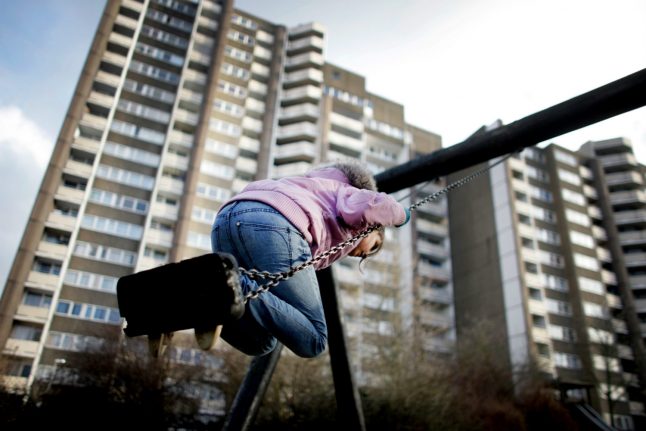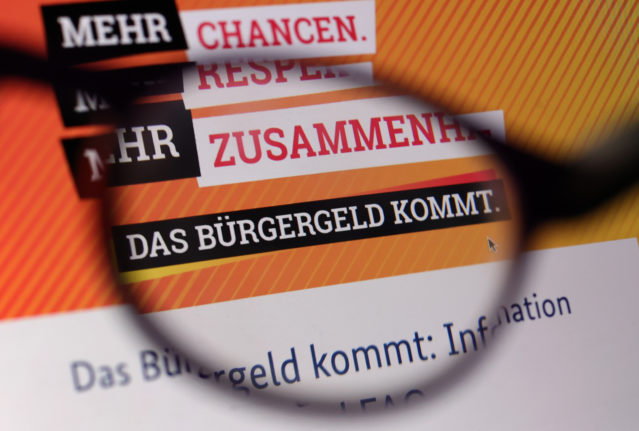Germany may be viewed from the outside as a thriving country with a high standard of living. And although that may be the case for some people, there are also stark contrasts across regions.
From wage inequalities to patchy mobile phone and Internet coverage to disparities in health care, poor travel connections and a lack of money for investments – problems plague many parts of the country.
Now the federal government is pledging to tackle these issues and reduce the gap between booming regions and those lagging behind.
“The goal is to give people the opportunity to live in their Heimat (roughly translated to 'homeland'),” said Interior Minister Horst Seehofer, of the centre-right CSU, sister party of Merkel's Christian Democrats (CDU), on Wednesday at a press conference in Berlin. “To this end, we must re-adjust structural policy and funding policy in Germany.”
How does Germany plan to do it?
The Equal Living Conditions commission outlined 12 points of action that it believes will lead to change over the next decade. It is expected to cost billions but Seehofer gave reassurances that the money is there.
Here are some of the planned measures:
– The government wants to put together a new support system which is aimed at strengthening economically weaker regions. This would replace the existing eastern German “solidarity package” and is aimed to be in place from 2020.
– There would be subsidies for the redevelopment of town centres so that more people can live in them instead of being forced out to the outskirts.

Gelsenkirchen, a deprived city in the far west of the country. Photo: DPA
– The government also wants to make sure that the whole of Germany has access to broadband Internet. It says the state will step in to cover the costs of around 15 percent of the country that would otherwise not receive coverage due it not being profitable for businesses to lay broadband cable.
– In addition, ministers would create more social housing and help provide extra childcare for families.
– The government also wants to attract companies to regions from which young people have migrated away from. Federal and research institutes should also be located away from the “overheated metropolitan regions,” Seehofer said. One example that was given was the eastern city of Lusatia, where coal mining will be phased out by 2038 and where the federal government says it will create 5,000 new jobs.
– There are also plans for the federal government to communicate with local authorities to discuss how debts can be reduced quicker so that municipalities can set aside money for investments. Currently, 2,000 of Germany's 11,000 municipalities are in debt.
READ ALSO: Where Germans are living the good life.. and where things aren't so rosy
Which parts of Germany need support?
At present, it is mainly regions in eastern Germany which receive support from the government through the solidarity tax. That is collected from incomes and is used to promote the ‘economic costs of German reunification', with the majority of the money collected directed at improving the economic situation and infrastructure in the former east.
But help is also needed in other areas, according to the government report.
As The Local has reported, studies show that the quality of living is lowest in western German cities near the Dutch and French borders, such as Dortmund, Duisburg and Trier.
Wages in these former industrial coal mining areas are dreadful in comparison to the rest of the country, where less than two thirds of locals have access to high speed Internet.
These areas are heavily in debt, the populations is much more likely to be living in poverty than anywhere else in the country, life expectancy is a national low, as is election turnout.
Agriculture Minister Julia Klöckner of the CDU, said poorer regions needed lots of support. “We will not close these gaps with a watering can policy,” she said.
“Support must therefore be a question of need, not of the direction of the compass,” she added.
In order to achieve equal living conditions, strong regions must also get on board, warned Family Minister Franziska Giffey of the centre-left Social Democrats.
“This will only work if those who are stronger are willing to take care of the weaker,” she said.
However, that led to Bavaria's premier Markus Söder warning against a redistribution of cash at the expense of strong regions.
 Horst Seehofer at the press conference on Wednesday. Photo: DPA
Horst Seehofer at the press conference on Wednesday. Photo: DPA
READ ALSO: Poverty rising in Germany's industrial Ruhr region
How will it be paid for?
The financing of these projects remains unclear. Budgeting must be implemented by each government minister within his or her own budget – which also forces them to set priorities, Seehofer said.
What happens next?
The commission's proposals are not set in stone yet, although Chancellor Merkel and her cabinet have approved them. The next step will be for Germany's states and municipalities to review them, probably after the summer break. If all goes to plan, the measures will be passed into law.
What do people think about it?
There’s been a mixed response, with some people saying more information is needed.
“Many cities and municipalities already have pragmatic approaches in place to make local life noticeably better,” said Katherina Reiche of the German Council for Sustainable Development.
Others, such as the Catholic relief organization Caritas, said more projects were needed to tackle social problems like loneliness, instead of a pure focus on economics.
“The recommendations for action must now urgently be followed by action,” demanded the president of the German Farmers' Union, Joachim Rukwied.
READ ALSO: Eastern German population dips to lowest level in 114 years
Opposition parties were critical. The Alternative for Germany (AfD) faction said the commission's report did not bring any new findings – the federal government continued to bleed rural regions dry, the party said.
The pro-business Free Democrats called for less bureaucracy for small to medium sized companies.
“We need less regulation in the administration so that founders can realize their innovative ideas more easily,” emphasized Christian Dürr, deputy leader of the FDP parliamentary group.
“This is better than new subsidy channels.”




 Please whitelist us to continue reading.
Please whitelist us to continue reading.
Member comments